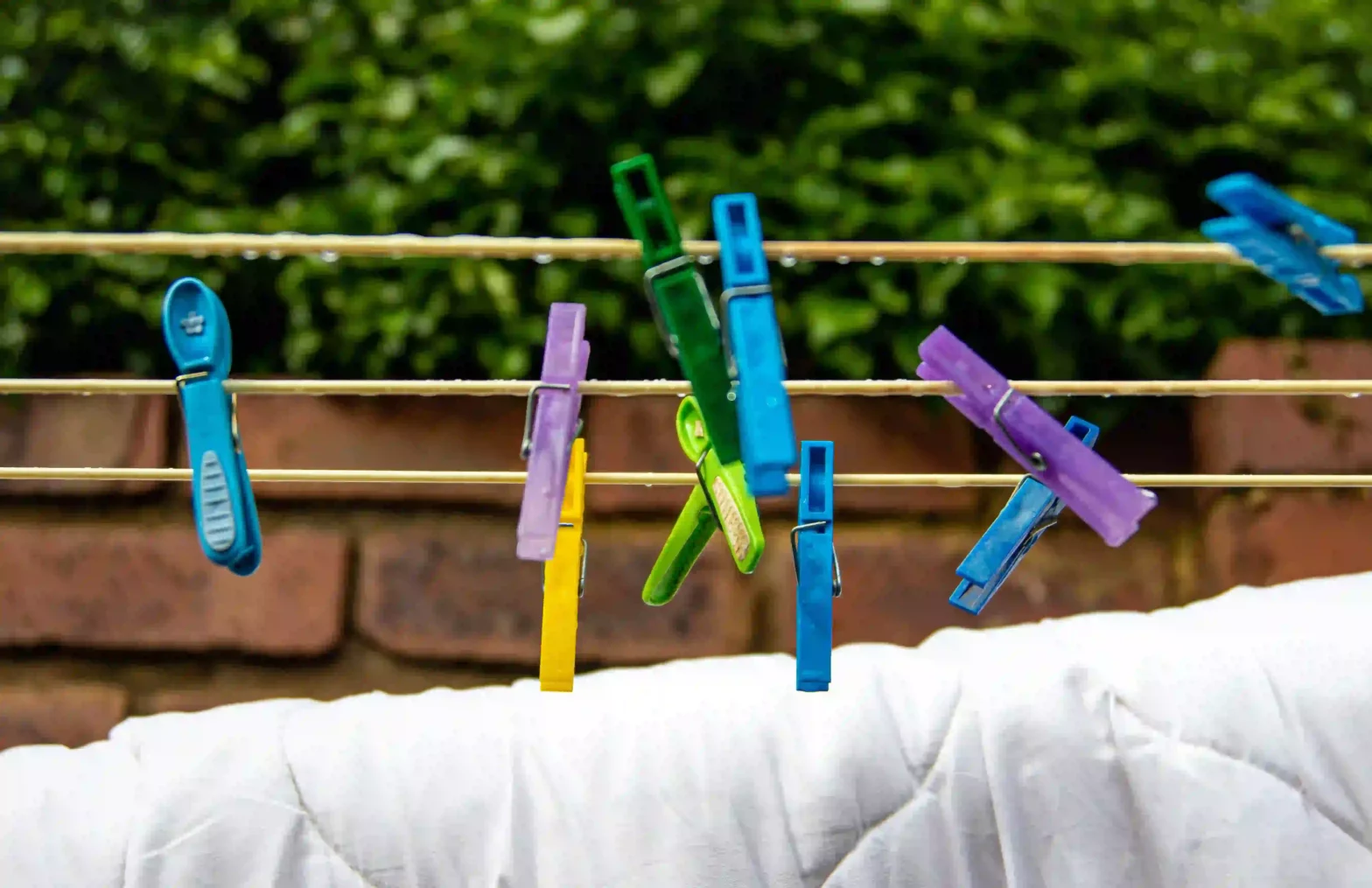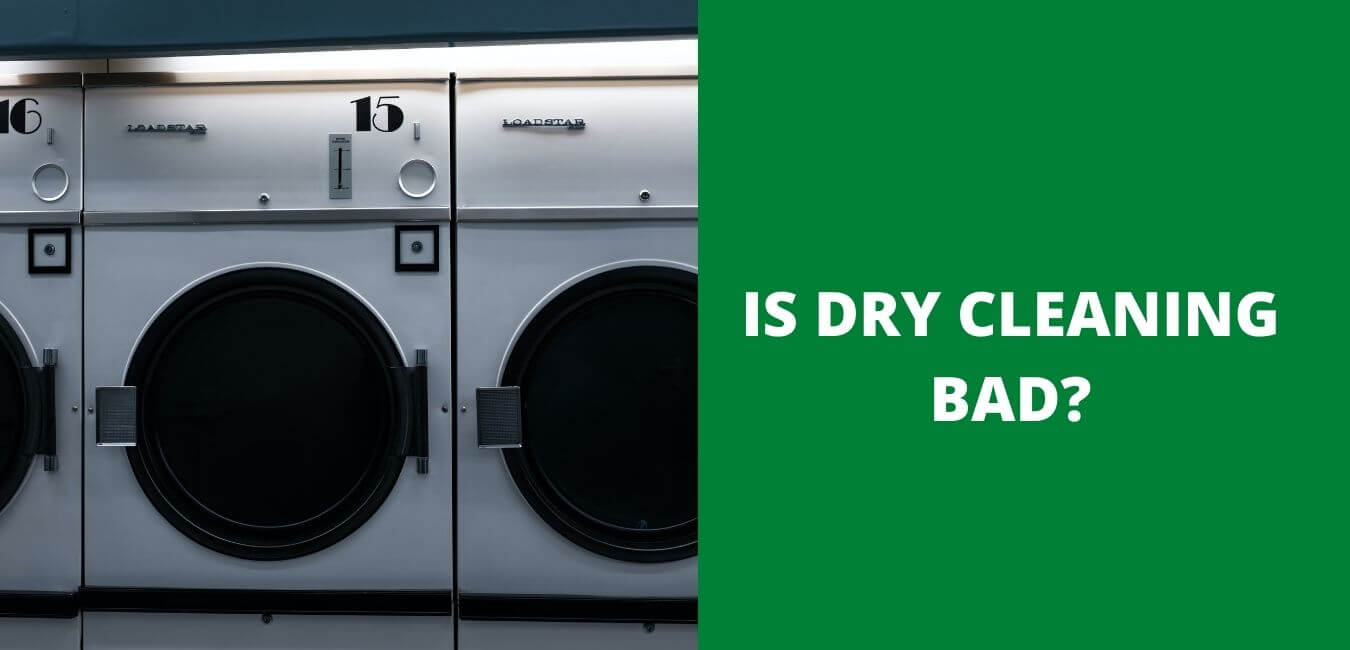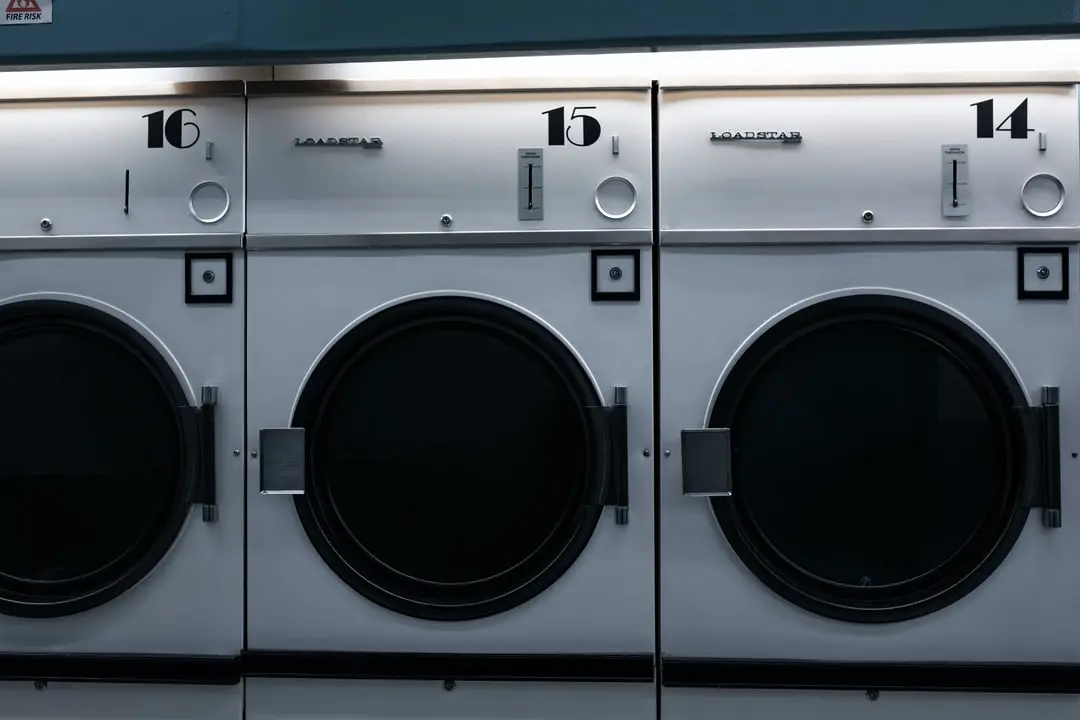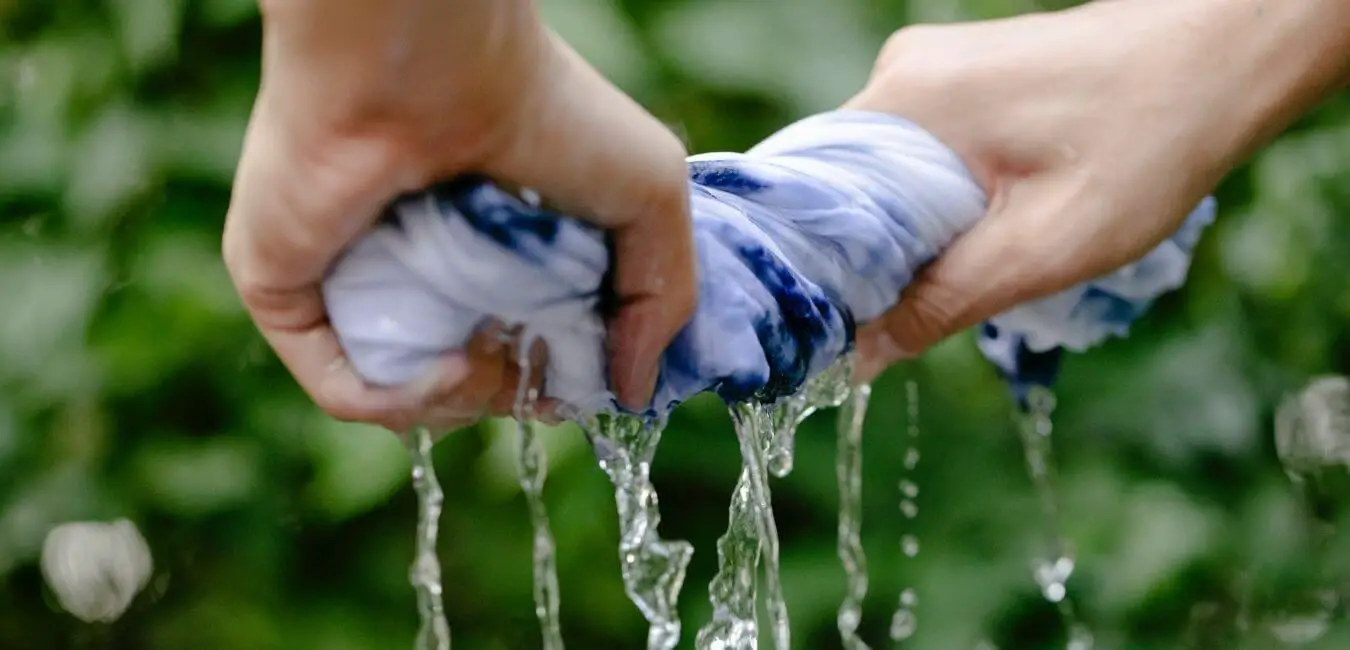In developed countries, laundry is usually done in warm or hot water. However, some people believe that washing clothes in cold water is better than washing them in hot water. The debate over whether to wash clothes in cold or hot water has been around for years. So, what is the truth?
Washing your clothes in hot water helps to get rid of tough stains on your clothes. However, hot water can cause your clothes to become faded and lose their color. On the other hand, washing your clothes in cold water is better for the environment and saves you money on energy bills, but one disadvantage is that it’s difficult to get rid of tough stains on your clothes using cold water alone.
When it comes to washing clothes, there are a lot of opinions on the best way to do it. The truth is that whichever way you choose to wash your clothes has its benefits and drawbacks. There is no definitive evidence as to whether washing in cold water is better than washing in hot water.
In this article, we will explore the benefits and drawbacks of washing your clothes in cold water, with the goal of assisting you in making an informed decision about whether to wash your clothes in cold or hot water. We will also talk about how to wash your clothes in cold water, either by hand or by machine.
How to Wash Your Clothes in Cold Water?

In recent years, there has been a push to conserve energy by washing clothes in cold water. When it comes to washing clothes, there are many options to choose from when it comes to detergents, water temperature, and cycle length. While warm or hot water may be the traditional choice, there are benefits to using cold water to wash clothes. The good news is that you can save a lot of water and money by washing your clothes in cold water.
There are many ways to wash your clothes in cold water. You may choose to hand wash your clothes or wash them in the washing machine. This article will guide you on how to wash your clothes in cold water, regardless of how you choose to wash your clothes.
How to Hand Wash Your Clothes in Cold Water
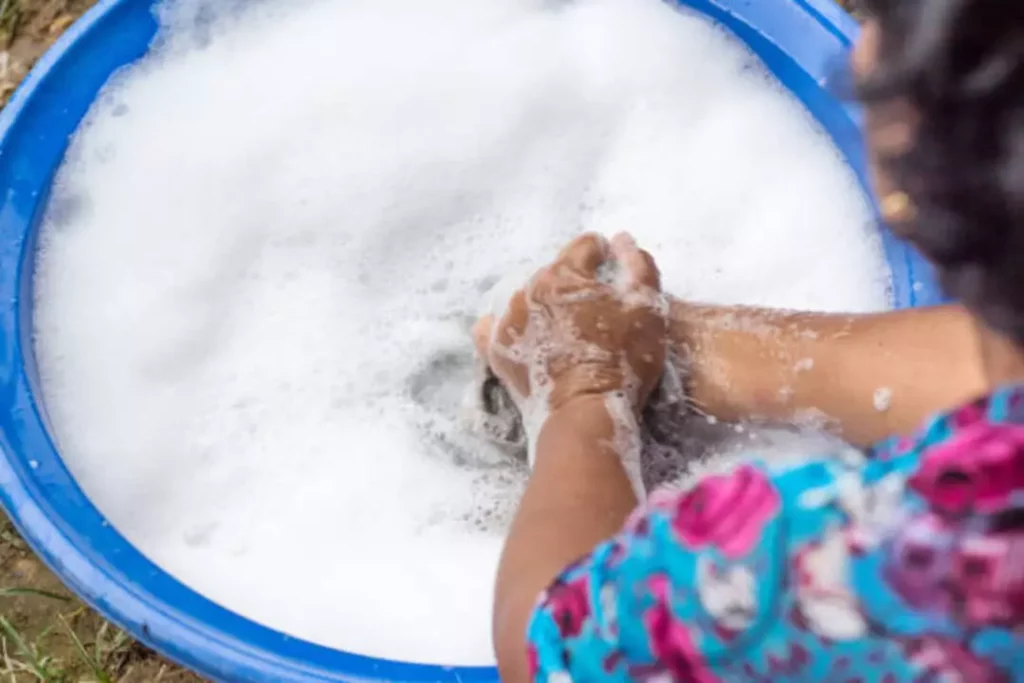
When it comes to laundry, many people think that hot water is the only way to go. This is not always the best option, and you might be surprised at how well cold water can wash your clothes.
There are many reasons why you may want to hand wash your clothes. Either you don’t have access to a washing machine or you decided to hand wash them in order to contribute positively to the environment. Irrespective of your reason, hand washing your clothes in cold water has a lot of benefits for you and the environment. Here are some tips on how to hand wash your clothes in cold water:
Materials Needed:
- A sink, Bucket, Basin, or Container.
- Detergent, White Vinegar, or Baking Soda
- A Clothesline.
- Coldwater
- Cup
Procedure:
- Start by sorting your clothes into light and dark colors. Make sure to wash light clothes first before dark clothes. This will prevent any color transfer between dark and light clothes.
- Fill your sink, bucket, basin, or container with enough cold water to cover your clothes completely.
- When using detergent only, add a small amount of detergent to the water before adding your clothes.
- When using white vinegar or baking soda, add a cup of vinegar or baking soda to the water and stir until it dissolves, then add your clothes.
- Allow the clothes to soak in the water for a few minutes.
- Swirl the clothes around to help break down the stains.
- Wash the dirtiest parts of the clothes by rubbing the clothes with your hand or by scrubbing the clothes with a soft brush.
- Rinse the clothes in cold water. Make sure to get rid of all soap residues on the clothes.
- Gently squeeze the clothes to remove excess water in the clothes.
- Hung the clothes on a clothesline to air dry.
How to Wash Your Clothes in a Washing Machine Using Cold Water
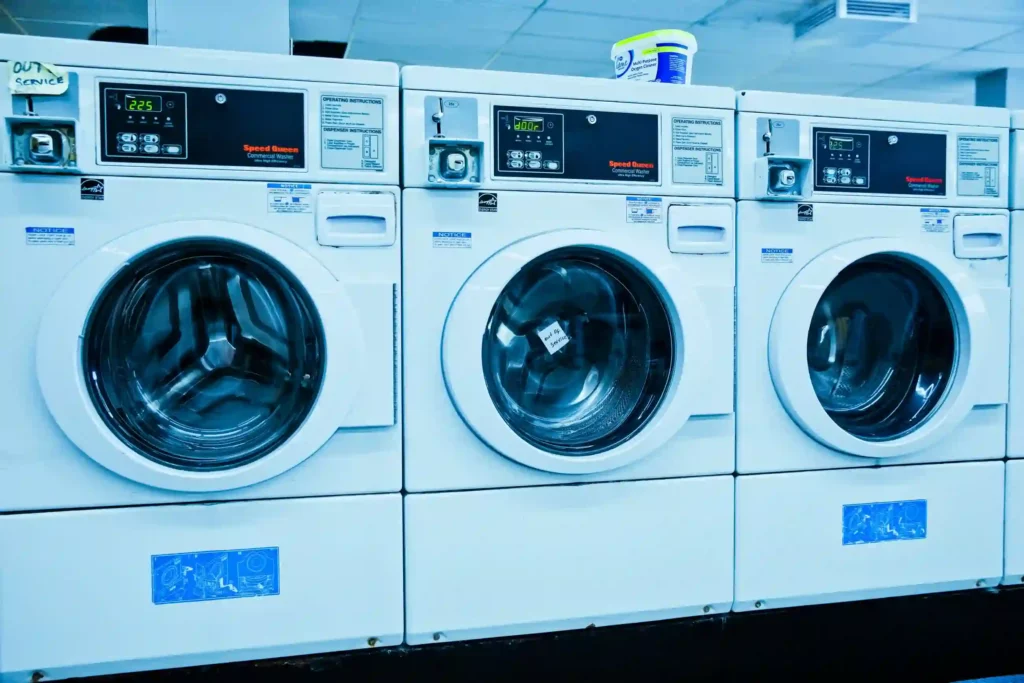
Using cold water is one of the most effective ways to wash your clothes in a washing machine. By doing so, you can reduce the amount of energy consumed for washing your clothes, which in turn saves you money. Before you start, some washing machines use hot water while others use cold water, so it’s important to determine the type of washer you have.
Determine the temperature setting for your washing machine by looking at the instructions that came with it. If your machine has a knob on the front, turn it to the cold-water setting. If your machine does not have a knob, search for a label that says “cold water” or “hot water” on the side of the washer.
Here is how to wash your clothes in a washing machine using cold water after determining the temperature settings of your washer:
Materials Needed:
- Washing machine with temperature setting set to cold water.
- Coldwater.
- Your usual detergent.
- A clothesline.
Procedure:
- Fill the washing machine with enough cold water so that it can cover the clothes when placed in it.
- Add your detergent to the detergent dispenser. You can add your fabric softener if needed.
- Set the temperature of the washing machine to cold water and set the length of time you wish to wash the clothes for.
- Add your clothes and then start the machine.
- After washing, allow the clothes to soak in the water for 10 to 15 minutes.
- Remove the clothes and hang them on a clothesline to air dry. Do not use a dryer to dry the clothes.
Is Washing Clothes in Cold Water Better for the Environment?

The debate over whether or not washing clothes in cold water is better for the environment has been around for years. Some people say that washing clothes in cold water is more energy efficient since cold water causes less wear and tear on clothing than warm water. Others believe that dirty clothes will end up in a landfill if washed in cold water, which is something that definitely doesn’t help the environment.
There are a few studies that have looked into this topic, but no definitive answer has been found as to which method is better for the environment. Some studies suggest that washing your clothes in cold water is better than washing them in hot water. The reasoning behind their belief is that cold water is less likely to release harmful chemicals into the environment. In addition, washing clothes in cold water uses less energy than washing them in hot water.
The jury is still out on this issue, but until there is conclusive proof one way or the other, you can experiment with both methods and see what works best for you. In the end, it’s up to each person to decide what they think is best for them, but whichever method they choose, they should be sure to use enough detergent and cold water to get the job done properly!
The Advantages of Washing Clothes in Cold Water

According to the U.S. Department of Energy, if all American households ran their washing machines using cold water only, it could save up to $2 billion a year on energy bills.
Here are a few reasons why you should consider washing your clothes in cold water instead of hot water.
- Washing your clothes in cold water can make them last longer. Washing your clothes in cold water preserves the color and reduces the chance of the clothes fading.
- Washing your clothes in cold water can save you energy and money on water bills. Washing clothes in cold water is more energy-efficient than washing in hot water as it uses less water and heat.
- Washing your clothes in cold water causes less damage to fabrics. The colder the water, the lower its acidity and alkalinity levels, which means that it is less likely to damage fabrics or bleach them out.
- It is one of the best ways to clean your clothes.
Disadvantages of Washing Clothes in Cold Water

Many people believe that washing clothes in cold water is the best and most energy-efficient way to clean clothes. However, there are some disadvantages to this practice.
Here are some drawbacks you should consider before deciding to wash your clothes in cold water:
- It can cause clothes to shrink: Washing clothes in cold water shrinks them in size and can cause them to wear out faster. This is because cold water causes the fibers of the fabric to contract, which makes them less elastic.
- It can cause wrinkles: Washing clothes in cold water can cause them to develop wrinkles. This is because, the fibers of the fabric contract under cold temperatures.
- In addition, cold water is often less effective at removing dirt and stains, which means your clothes will need to be washed more often.
Interested in reading similar articles? Click here for articles that can help you keep yourself and your surroundings clean always.
Conclusion
In conclusion, there are many advantages and disadvantages to washing clothes in cold water. Some benefits include saving money on energy bills and preserving the color of clothes. Additionally, using cold water is better for the environment because it reduces emissions from energy-intensive machines.
However, there are a few disadvantages to consider as well. Washing your clothes in cold water can be difficult to get clothes clean, and it can sometimes take longer to wash clothes this way. Additionally, washing clothes in cold water can cause wrinkles.
Ultimately, the decision of whether or not to wash clothes in cold water depends on the individual and their specific needs and preferences. Thank you for reading!
